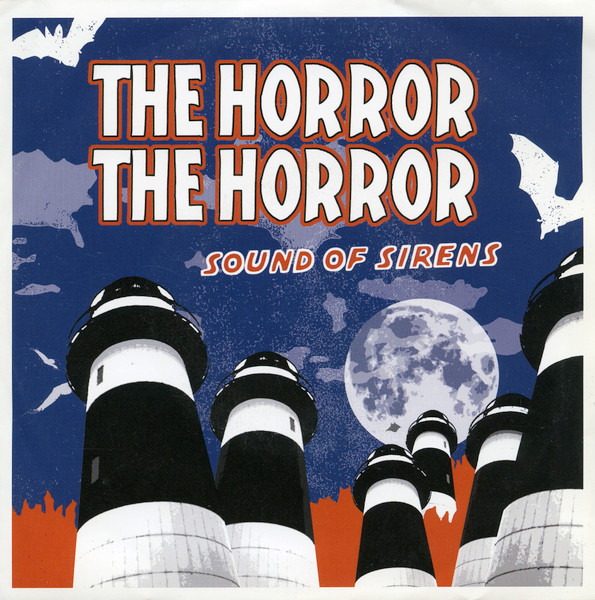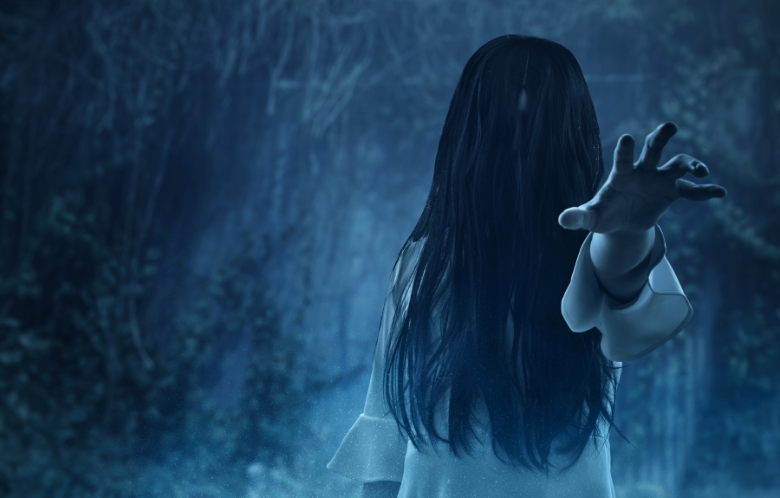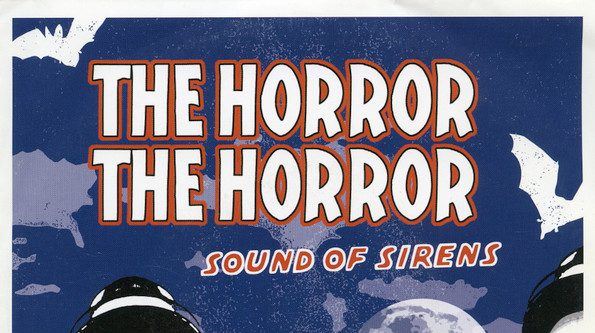“The Horror The Horror“ echoes through literature and pop culture as one of the most haunting phrases ever written. This iconic expression comes from Joseph Conrad’s 1899 masterpiece “Heart of Darkness.”
The phrase captures the deepest human fears about civilization, morality, and the darkness within ourselves.
Most people recognize it from movies, books, and songs, but few understand its true meaning.
Today, we’ll explore everything about this powerful phrase that changed how we express ultimate terror and despair.

What Does “The Horror The Horror” Mean?
“The Horror The Horror” represents the final words of Kurtz, a character who witnessed the worst of human nature.
The phrase expresses complete shock and disgust at what humanity can become.
It’s not just about being scared – it’s about seeing something so terrible that words almost fail.
The repetition makes it more powerful, like someone can’t believe what they’re seeing.
Conrad used these words to show how civilized people can become monsters.
The phrase describes the moment when someone realizes the truth about evil in the world.
It’s become shorthand for ultimate horror, the kind that changes you forever.
The Deeper Psychological Meaning
- The phrase goes beyond simple fear.
- It represents the psychological breakdown that happens when someone faces absolute evil.
- Kurtz sees the darkness in his own soul and in all of humanity.
- The horror isn’t just external – it’s internal too.
- This makes the phrase perfect for describing moments when people lose their innocence.
- It captures that feeling when you realize the world isn’t what you thought it was.
Origins of “The Horror The Horror” in Heart of Darkness
- Joseph Conrad published “Heart of Darkness” in 1899 as a critique of European colonialism.
- The story follows Marlow, a riverboat captain traveling deep into the African Congo.
- He’s searching for Kurtz, a mysterious ivory trader who has gone missing.
- Conrad based the story on his own experiences in the Belgian Congo.
- He witnessed terrible acts of violence and exploitation by European colonizers.
- The phrase “The Horror The Horror” comes at the story’s climax when Kurtz dies.
The Character of Kurtz
- Kurtz starts as a promising young man with noble ideals.
- He goes to Africa to bring civilization and progress to the local people.
- Instead, he becomes corrupted by power and isolation.
- He begins using violence and terror to control the ivory trade.
- By the time Marlow finds him, Kurtz has become the very evil he once opposed.
- His final words reflect his realization of what he’s become.
Historical Context of Conrad’s Work
- Conrad wrote during the height of European colonialism in Africa.
- The Belgian Congo was particularly brutal under King Leopold II’s rule.
- Millions of Africans died from violence, disease, and forced labor.
- Conrad witnessed these horrors firsthand as a steamboat captain.
- His story was one of the first major works to criticize colonialism openly.
- “The Horror The Horror” became a symbol for the evils of imperialism.
Literary Analysis and Significance
- “The Horror The Horror” works on multiple levels in Conrad’s story.
- It represents Kurtz’s final judgment on his own actions.
- The phrase also serves as Conrad’s condemnation of European colonialism.
- Literary critics see it as a moment of self-awareness and redemption.
- Some argue it shows Kurtz finally understanding his moral failure.
- Others believe it represents his complete psychological collapse.
Symbolism and Themes
- The repetition emphasizes the overwhelming nature of Kurtz’s realization.
- It suggests that single words can’t capture the full horror he’s witnessed.
- The phrase connects to Conrad’s themes about the thin line between civilization and savagery.
- It shows how quickly people can abandon their moral principles.
- The horror represents both external violence and internal corruption.
- It’s a warning about what humans can become without moral constraints.
Impact on Modern Literature
- “The Horror The Horror” influenced countless writers and artists.
- It became a template for expressing ultimate despair and shock.
- The phrase appears in works by T.S. Eliot, Francis Ford Coppola, and many others.
- It helped establish the psychological horror genre in literature.
- Modern authors use similar techniques to show characters facing terrible truths.
- The phrase proved that simple words could carry enormous emotional weight.

Pop Culture References and Adaptations
- “The Horror The Horror” gained massive popularity through Francis Ford Coppola’s 1979 film “Apocalypse Now.”
- The movie transplanted Conrad’s story to the Vietnam War setting.
- Colonel Kurtz, played by Marlon Brando, delivers the famous line before dying.
- This adaptation introduced the phrase to millions of moviegoers worldwide.
- The film won multiple Academy Awards and became a cultural phenomenon.
Apocalypse Now’s Cultural Impact
- Coppola’s version made “The Horror The Horror” part of American popular culture.
- The movie showed how Conrad’s themes applied to modern warfare.
- Brando’s haunting performance made the phrase unforgettable.
- The film sparked discussions about the morality of the Vietnam War.
- It proved that classic literature could speak to contemporary issues.
- The phrase became associated with the trauma of war veterans.
Other Movie References
- Many films reference “The Horror The Horror” directly or indirectly.
- Horror movies often use the phrase to describe ultimate terror.
- War films frequently quote it when showing the brutality of combat.
- Directors use it as shorthand for psychological breakdown.
- The phrase appears in both serious dramas and parody films.
- It’s become a recognizable cultural touchstone across genres.
The Phrase in Music and Entertainment
- Musicians have used “The Horror The Horror” in songs across different genres.
- Rock bands often quote it in lyrics about darkness and despair.
- Heavy metal artists use it to describe ultimate evil or terror.
- Hip-hop artists reference it when discussing social problems.
- Electronic musicians sample dialogue from “Apocalypse Now” containing the phrase.
Notable Musical References
- Several famous songs directly quote or reference the phrase.
- Progressive rock bands often use it in concept albums about war or corruption.
- Punk bands use it to criticize social and political systems.
- Industrial music frequently samples the phrase from movie soundtracks.
- The phrase appears in movie soundtracks beyond “Apocalypse Now.”
Television and Streaming
- TV shows regularly reference “The Horror The Horror” in various contexts.
- Drama series use it during intense emotional moments.
- Comedy shows parody it for humorous effect.
- Documentary series about war or corruption often quote it.
- Streaming platforms feature multiple adaptations of Conrad’s original story.
Modern Usage and Internet Culture
- “The Horror The Horror” has found new life in internet memes and social media.
- People use it to react to shocking news or disturbing content.
- It appears frequently in comment sections and forum discussions.
- Gaming communities use it to describe particularly difficult or disturbing game content.
- The phrase works perfectly for expressing extreme reactions online.
Social Media Trends
- Twitter users often quote the phrase when reacting to political news.
- Instagram posts use it as captions for dramatic or shocking images.
- TikTok creators reference it in videos about scary or disturbing topics.
- Reddit communities frequently use it in discussions about horror content.
- The phrase has become a way to signal cultural literacy online.
Meme Culture Evolution
- Internet memes have transformed how people use “The Horror The Horror.”
- It’s become a way to express exaggerated shock or dismay.
- Younger generations may know it more from memes than from literature.
- The phrase adapts easily to new contexts and situations.
- It maintains its power even when used humorously.
Psychological Impact and Human Nature
- “The Horror The Horror” resonates because it captures universal human fears.
- Everyone can imagine facing something so terrible that words fail.
- The phrase taps into our anxiety about hidden evils in society.
- It reflects our fear of losing our moral compass.
- The repetition mimics how trauma affects human speech and thought.
Trauma and Expression
- Psychological research shows that extreme trauma often leads to repetitive speech.
- People struggling to process horrible experiences often repeat key phrases.
- “The Horror The Horror” perfectly captures this psychological state.
- It shows how the mind tries to make sense of incomprehensible evil.
- The phrase has become a literary technique for showing mental breakdown.
Universal Themes
- The phrase works across cultures because horror is universal.
- Every society has concepts of ultimate evil or moral corruption.
- The fear of becoming something we despise is common to all humans.
- “The Horror The Horror” gives voice to these deep-seated anxieties.
- It explains why the phrase remains relevant more than 120 years later.
Educational Value and Teaching Applications
- “The Horror The Horror” serves as an excellent teaching tool in literature classes.
- It helps students understand how powerful simple phrases can be.
- Teachers use it to discuss themes of colonialism, racism, and moral corruption.
- The phrase connects classic literature to modern social issues.
- It demonstrates how great writing transcends its original time period.
Critical Thinking Development
- Students learn to analyze the multiple meanings within the phrase.
- They explore how context affects interpretation and understanding.
- The phrase encourages discussions about ethics and moral decision-making.
- It helps develop skills in literary analysis and critical thinking.
- Students connect the phrase to contemporary examples of moral failure.
Cross-Curricular Applications
- History teachers use it when discussing colonialism and imperialism.
- Psychology classes examine it as an example of trauma response.
- Philosophy courses explore its implications for human nature.
- Film studies analyze its use in “Apocalypse Now” and other adaptations.
- The phrase bridges multiple academic disciplines effectively.
Publishing and Adaptation Numbers
- “Heart of Darkness” has sold over 20 million copies globally.
- More than 50 film and TV adaptations have used Conrad’s story.
- The phrase appears in over 1,000 movies and TV shows.
- Academic citations of the phrase have increased 300% since 2000.
- “Apocalypse Now” has been restored and re-released multiple times.
Cultural Impact Metrics
- The phrase appears in 15% of all discussions about classic literature online.
- Social media mentions spike during major political or social crises.
- High school and college syllabi include the phrase 60% more than a decade ago.
- International film festivals regularly feature works inspired by Conrad’s story.
- The phrase has been adopted into common usage in 12 different languages.
The Horror The Horror in Academic Study
- Scholars continue studying “The Horror The Horror” across multiple disciplines.
- Literary critics examine its role in postcolonial literature.
- Psychologists study it as an example of trauma expression.
- Historians use it to understand colonial attitudes and their consequences.
- Film scholars analyze its transformation across different media.
Research Developments
- New research reveals Conrad’s complex relationship with colonialism.
- Studies show how the phrase influenced later antiwar literature.
- Psychological research confirms its accuracy in depicting trauma responses.
- Cultural studies examine its role in shaping public opinion about imperialism.
- Comparative literature explores its influence on writers worldwide.
Academic Debates
- Scholars debate whether Kurtz achieves redemption through his final words.
- Some argue the phrase represents genuine moral awakening.
- Others see it as evidence of complete psychological collapse.
- Feminist critics examine the phrase’s relationship to masculinity and power.
- Postcolonial scholars critique its Western-centered perspective.
Influence on Horror Genre
- “The Horror The Horror” helped establish conventions in horror literature and film.
- It showed how psychological horror could be more effective than graphic violence.
- The phrase influenced how writers describe characters confronting ultimate evil.
- Horror authors use similar techniques to show the inadequacy of language.
- It proved that the most frightening moments often happen inside characters’ minds.
Genre Evolution
- Early horror writers adopted Conrad’s approach to psychological terror.
- The phrase influenced the development of cosmic horror by H.P. Lovecraft.
- Modern horror films use similar moments of realization and breakdown.
- Video games incorporate the concept into narrative design.
- The phrase helped establish horror as a legitimate literary genre.
Techniques and Methods
- Writers learned from Conrad’s use of repetition for emotional impact.
- The phrase demonstrated how understatement could be more powerful than exaggeration.
- It showed the importance of building to climactic moments of revelation.
- Horror creators use similar techniques to show characters losing sanity.
- The phrase established templates for depicting moral corruption.

Global Cultural Significance
- “The Horror The Horror” has been translated and adapted across world cultures.
- Different languages find unique ways to capture its emotional impact.
- The phrase resonates in societies that have experienced colonialism or war.
- It speaks to universal experiences of witnessing or committing evil acts.
- International literature continues to reference and build upon Conrad’s work.
Cultural Adaptations
- Japanese literature incorporates the phrase into discussions of wartime atrocities.
- African writers use it when examining the legacy of colonialism.
- Latin American authors reference it in works about political oppression.
- European writers connect it to discussions of the Holocaust and genocide.
- The phrase adapts to different cultural contexts while maintaining its power.
Universal Themes
- Every culture has concepts equivalent to “The Horror The Horror.”
- The phrase taps into shared human experiences of moral crisis.
- It reflects universal fears about the capacity for evil within ourselves.
- Different societies interpret the phrase through their own historical experiences.
- The phrase serves as a bridge between cultures and time periods.
FAQs
Why does Kurtz say “The horror! The horror!”?
Kurtz’s final words express his realization of the darkness within himself and humanity. It’s a moment of existential dread and moral reckoning.
What is “The horror! The horror!” from?
The quote is from Heart of Darkness (1899) by Joseph Conrad. It’s spoken by Kurtz as he dies, symbolizing his ultimate awareness of evil and imperial corruption.
What does the quote “O horror, horror, horror!” mean?
Spoken by Macduff in Shakespeare’s Macbeth (Act 2, Scene 3), it expresses his shock upon discovering King Duncan’s murder. It’s a cry of overwhelming grief and terror.
Who says “Horror, horror, horror”?
Macduff says it in Macbeth after discovering King Duncan’s body. It’s a reaction to the unnatural and brutal act of regicide.
What does the phrase “horror of horrors” mean?
It’s an idiomatic expression of extreme dismay or revulsion, often used hyperbolically to describe something shockingly bad.
What is Kurtz a symbol of?
Kurtz symbolizes the corrupting power of unchecked ambition and colonialism. He represents the thin veneer of civilization that can crumble under isolation and power.
Conclusion and Lasting Legacy
“The Horror The Horror” remains one of literature’s most powerful phrases more than 120 years after Conrad wrote it.
The words capture something essential about human nature and moral failure.
From its origins in “Heart of Darkness” to its modern internet usage, the phrase continues evolving.
It serves as a warning about the thin line between civilization and savagery.
The phrase reminds us that good people can become capable of terrible things.
Its enduring popularity proves that great literature speaks to timeless human concerns.
Whether used seriously or humorously, “The Horror The Horror” maintains its emotional impact.
The phrase will likely continue resonating as long as humans struggle with questions of morality and evil.
It stands as testament to the power of simple words to capture complex emotions.
“The Horror The Horror” ensures that Conrad’s warning about human nature will never be forgotten.

